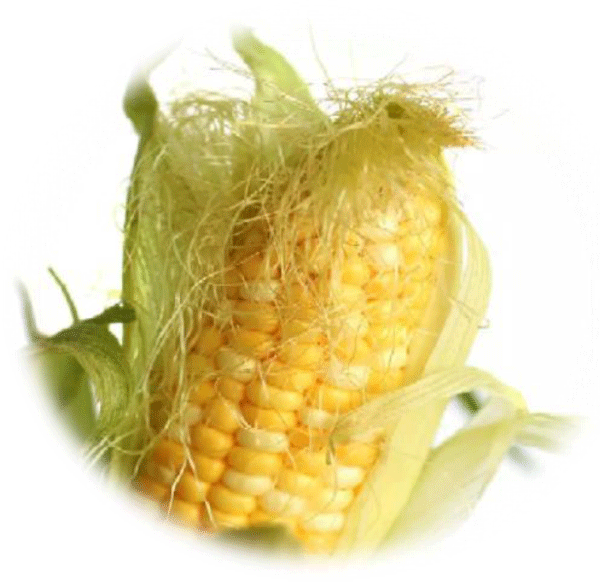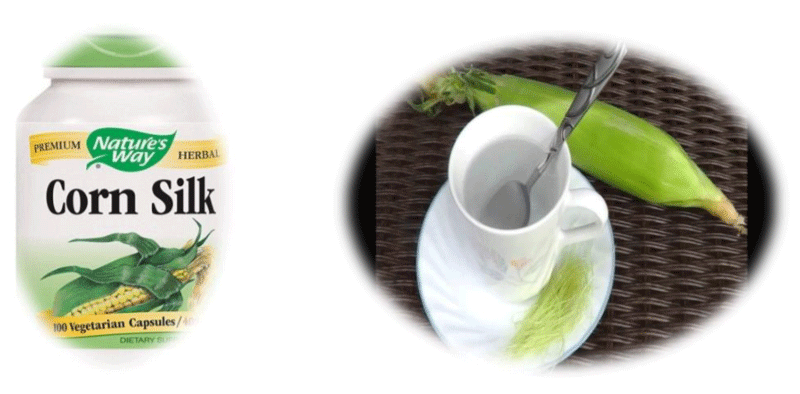Medical Healthy Care of Stigma maydis: Pharmacological Review?
Walaa Fikry Elbossaty*
Department of Biochemistry, Faculty of Sciene, Damietta University, Egypt
*Address for Correspondence: Walaa Fikry Elbossaty, Department of Biochemistry, Faculty of Sciene, Damietta University, Egypt, ORCID: orcid.org/0000-0002-3131-1093, E-mail: Walaafikry1985@gmail.com
Submitted: 04 June 2020; Approved: 24 June 2020; Published: 25 June 2020
Citation this article: Elbossaty WF. Medical Healthy Care of Stigma maydis: Pharmacological Review. Sci J Food Sc Nutr. 2020; 6(1): 001-003.
Copyright: © 2020 Elbossaty WF. This is an open access article distributed under the Creative Commons Attribution License, which permits unrestricted use, distribution, and reproduction in any medium, provided the original work is properly cited
Keywords: Corn silk; Zea mays L; Ca2+; Mg2+; K+; Na+; Hypertension; Diabetes
Download Fulltext PDF
A Zee may L. is known as sweet corn or corn, and it is considered one of the most important food crops in the world.
Corn is used as food and raw material to extract starch, ethanol and oil. During corn harvest, an amount of corn silk and corn husks are produced. Crusts are used as raw material in the manufacture of charcoal, compost, and as animal food.
Corn silk is also scientifically known as Maydis stigma as tea or cosmetics, and corn silk contains some vital compounds such as vitamins, proteins, carbohydrates, magnesium and potassium calcium in addition to some chemical compounds such as flavonoids, all of which makes corn silk an effective substance in treating many diseases.
Background
The soft fibers in the upper portion of the corn are called corn silk (Stigma maydis) which color change from light green turn into red, yellow or light brown with sweet taste (Figure 1) [1].
Ca2+These soft fibers are used for corn growth and pollination also, this silk has been used as a traditional herbal remedy in popular China, America and some countries are still using it as herbal remedy such as Turkey, Spain, France and the United States [2].
Corn silk consists of protein, carbohydrates, vitamins and minerals (Mg2+, Ca2+, K+), volatiles oils (terpenoids) and steroids such as sitosterol and stigmasterol, alkaloids, and saponins that help strengthen the immune system in addition to its effective effect as diuretics [3].
It is used as a treatment in many diseases such as urinary tract infections, bladder infections, kidney stones, bedwetting, sugar, high blood pressure and high cholesterol [4].
These fibers may be used fresh or used as a tea after being extracted or used as a pill (Figure 2) [5].
Stigma maydis pharmacological benefits
There are numerous effects for Stigma mMaydis; it can be used as antioxidants, anti-parasites, hypoglycemic, hypotension, and hypolipidemic compound, Inaddition to its effect on prevention kidney stones.
• Antioxidant and anti-inflammatory effects: Corn silk is a herbal plant rich in antioxidants and is rich in flavonoid antioxidants, which plays an important role in protecting against free radicals and scavenge reactive oxygen species, it also works as an anti-inflammatory because it contains magnesium act as physiologic Ca2+ channel blocker which is useful in protecting the body from inflammation through inhibit tumor necrosis factor-α (TNF) or E. coli Lipopolysaccharide (LPS) play an important role as mediators of inflammation , hence has an effective role in the treatment of cancer and infections [6].
• Anti-parasite effect: Corn silk used as antifungal such as Fusarium graminearum, Inaddition to its effect as antibacterial against many organisms as Pseudomonas aeruginosa, Klebsiella pneumonia, Staphylococcus aureus, Streptococcus pneumonia, Escherichia coli and Streptococcus pyogenes [7].
• Adjustment of blood glucose (Hypoglycemic effect): Diabetes is the high blood sugar. Corn silk increases the hepatic glycogen of a pepper and then lowers the blood sugar level as it increases the insulin level and recovering the injured β-cells [8].
• Lowering blood pressure: Corn silk acts as a regulator of the electrolytes present in the body, as it helps the release of potassium and sodium in the urine, so the exit of water and minerals in the urine helps reduce high blood pressure [9].
• Treatment of kidney stones: Kidney stones are small deposits which sediment in ureter and caused pain. Corn silk used to increase urine flow so, prevent the sedimentation of these stones in kidney. Diuretic action of cork silk may prevent excess uric acid formation [10].
• Anti-hyperlipidemia effect: Hyperlipidemia is characterized by a high rate of cholesterol and triglycerides, which leads to a high rate of arteriosclerosis that affects the circulatory system due to the inclusion of corn silk on flavonoids [11].
• Reduction of Nephrotoxicity: Nephrotoxicity is characterized by a change in the functional composition of the kidneys, and this is caused by inhalation, ingestion or injection of some harmful substances that affect the kidney cells [12].
Corn silk is used to treat Nephrotoxicity in a dose-dependent manner at up to 500 mg / kg, while high doses cause nephrotoxicity such as hyaline cast formation [13].
Precaution in use of corn silk
Some studies have shown that caution should be used in the use of corn silk, especially in people with allergies, as studies have shown that some people who eat corn silk have symptoms of allergy due to a lack of potassium [14].
Also, the use of corn silk is forbidden to be consumed during pregnancy, as it increases the contraction of the uterine muscles and may then cause miscarriage [15].
It was also found that there is a conflict between eating corn silk and antihypertensive drugs if it is taken at the same time because it leads to a reduction in the rate of pressure.
In addition to eating corn silk and sugar-lowering drugs, there is a conflict between them, because a sudden decrease in blood sugar occurs and this is not desirable [14].
Conclusion
The world has moved in the modern era to use alternative medicine and herbs in treating many diseases in order to overcome the side effects caused by treatment with the use of chemicals.
Therefore, before starting to use any herbal plant, it must be sure that it is not toxic and free from the side effects caused by other treatments.
Whereas, scientific studies have confirmed that the use of corn silk is safe and effective and has no side effects except in some diseases and if used in high doses, therefore corn silk is used as a treatment for many diseases.
- Theeraphol S, Nutticha Y, Keawalin A, Seksan S. Comparative studies on chemical composition and antioxidant activity of corn silk from two varieties of sweet corn and purple waxy corn as influenced by drying methods. Food and Applied Bioscience Journal. 2019; 7: 64-80. https://bit.ly/2YuggPm
- Khairunnisa H, Puziah H, Shuhaimi M. Corn Silk (Stigma maydis) in Healthcare: A phytochemical and pharmacological review. Molecules. 2012; 17: 9697-9715. DOI: 10.3390/molecules17089697
- Haiyan Z, Xiaowan C, Yong L. Rapid recovery of high content phytosterols from corn silk. Chem Cent J. 2017; 11: 108. DOI: 10.1186/s13065-017-0277-1
- Sabiu S, Ajani E, Abubakar A, Sulyman A, Nurain OI, Emmanuel IA. Toxicological evaluations of Stigma maydis (corn silk) aqueous extract on hematological and lipid parameters in Wistar rats. Toxicology Reports. 2015; 2: 638-644. DOI: 10.1016/j.toxrep.2015.04.001
- Anthony B. Beautiful corn: America's original grain from seed to plate. New Society Publishers; 2012. ISBN 9780865717282.
- Yeon-hee K, Amy C, Sang-Ah K, Minju K, Song M, Han HW. Potential photoprotective effect of dietary corn silk extract on ultraviolet B-induced skin damage. Molecules. 2019; 24: 2587. DOI: 10.3390/molecules24142587
- Thompson MEH, Raizada MN. Fungal pathogens of maize gaining free passage along the silk road. Pathogens. 2018; 7: 81. DOI: 10.3390/pathogens7040081
- Jianyou G, Tongjun L, Linna H, Liu Y. The effects of corn silk on glycaemic metabolism. Nutr Metab (Lond). 2009; 6: 47. DOI: 10.1186/1743-7075-6-47.
- Shihua S, Siming L, Weihao L. Corn silk tea for hypertension: A systematic review and meta-analysis of randomized controlled trials. evidence-based complementary and alternative medicine. 2019; 2019: 1-7. DOI: 10.1155/2019/2915498
- Ae Wha H, Hyeon J, Sun L, Myung H, Kim WK. Acute and subacute toxicity evaluation of corn silk extract. Prev Nutr Food Sci. 2018; 23: 70-76. doi: 10.3746/pnf.2018.23.1.70
- Jae H, Sun R, Hyun J, Myung HK, Ha AW, Kim WK. Corn silk extract improves cholesterol metabolism in C57BL/6J mouse fed high-fat diets. Nutr Res Pract. 2016; 10: 501-506 DOI: 10.4162/nrp.2016.10.5.501.
- Sarah E, Christy C. Chronic kidney disease and exposure to nephrotoxic metals. Int J Mol Sci. 2017; 18: 1039. DOI: 10.3390/ijms18051039
- Gholamreza S, Amin D, Farnaz Y. Protective effects of corn silk extracts administration on gentamicin-induced nephrotoxicity in rat. Comparative Clinical Pathology. 2017; 20: 89-94. https://bit.ly/2Nv9ZMS
- Wenzhu Z, Yongguang Y, Zhipeng Y. Comparison of anti-diabetic effects of polysaccharides from corn silk on normal and hyperglycemia rats. Int J Biol Macromol. 2012; 50: 1133-1137. DOI: 10.1016/j.ijbiomac.2012.02.004
- Kristine H, Hedvig N, Lone H. Pregnancy outcome after use of cranberry in pregnancy-the Norwegian mother and child cohort study. BMC Complement Altern Med. 2013; 13: 345. 10.1186/1472-6882-13-345



Sign up for Article Alerts